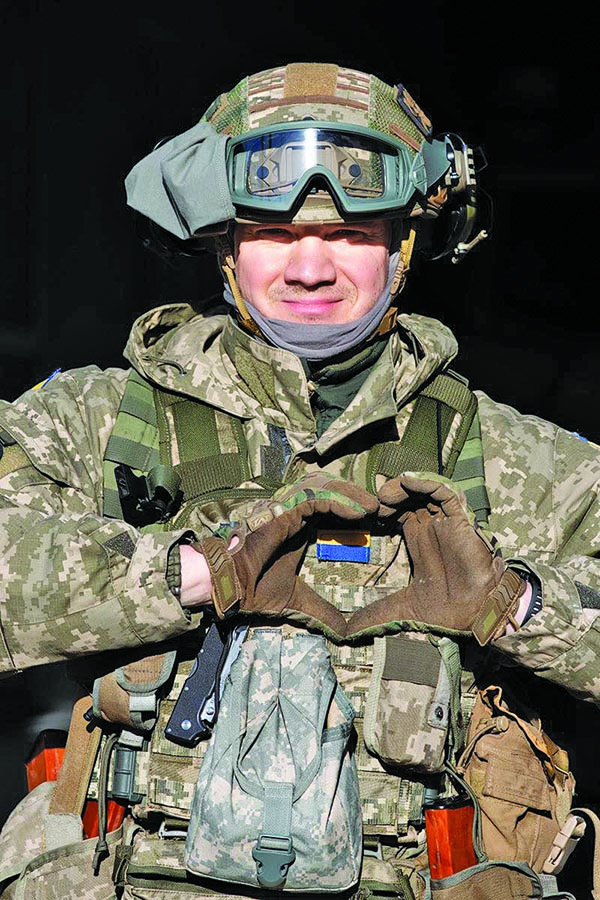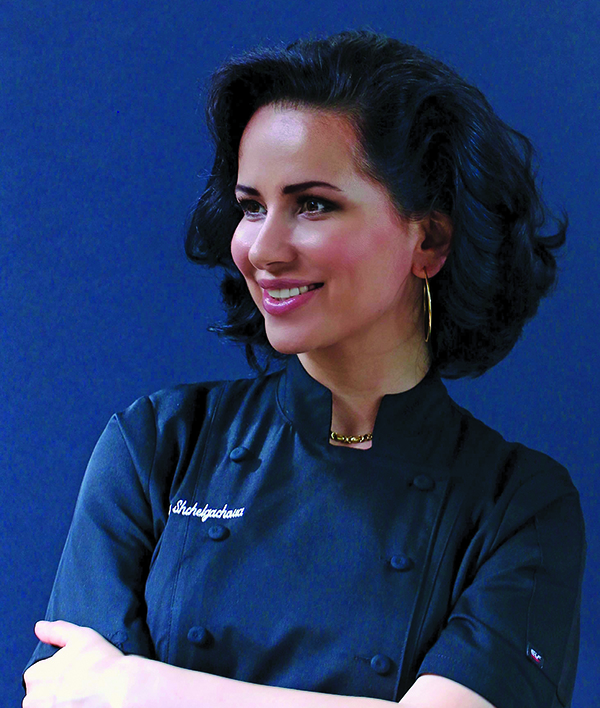
With news coming out daily about the Russian invasion of Ukraine, local Highlander and Ukrainian native, Oksana Shchelgachova, said her soul was torn apart when Russia began the invasion and occupation of the territories in Ukraine that dates to 2014.
On Feb. 24, Russian forces invaded Ukraine, sending several ballistic missiles at the capitol, Kyiv.
The United Nations office said Saturday that it had documented 240 civilian casualties, while acknowledging that was almost certainly an undercount.
Shchelgachova said she has always followed the life in her homeland.
“I was born in a small town, like Highlands, called Torez in the Donetsk region, almost on the border with Russia,” Shchelgachova said. “My father is Ukrainian, and my mother is Russian. I speak Russian and Ukrainian. Thinking back on my childhood, I always have an ache in my heart. I was the happiest child in the world. I had all my family alive. How happy I was. I always followed the life in my homeland. My parents and my friends live there, my family’s graves are there. My roots are there. My soul was torn apart when, in 2014, the Kremlin dwarf began the annexation and occupation of the territories of Ukraine, the occupation of my hometown. Even then, many of my friends had died and many were missing. Putin was mean, he started with lies and propaganda. The Ukrainian people are peaceful people, and to give you a better understanding of the situation, since the collapse of the USSR, Ukraine has not participated in any military conflict. Russia on the contrary, has had a number of wars with other ‘neighbors’ since 1991.”
The list of wars that Russia has been a part of, against their neighbors, that Shchelgachova said was from 1991-93 with Georgia; 1992, with the Pridnestrovain Moldavian Republic; 1992-97 with Tajukistan; 1992-93 with Abkhazia; 1994-96, the First Chechen War; 1999, the Dagestan War; 1999-2009, the Second Chechen War; 2008, with South Ossetia; 2009-2017, with North Caucasus; 2014, the annexation of the Crimea, Ukraine, occupation of Donetsk (The region where Shchelgachova was born and where her mother lives) and Lugansk regions of Ukraine; 2015, with Syria; 2018, with Central African Republic; 2022, Russian invasion of Ukraine.
“Do the Russians want war?” Shchelgachova asked. “I don’t want you to think that all Russians are the same. I’m talking about those who support the policies of their ‘king.’”
Though Russia has been in a conflict with Ukraine since 2014, Shchelgachova said she always had a feeling that Russia would invade again.
“Knowing history, watching the aggressive actions of Russia, listening to friends and acquaintances all those years, I always knew that this dictator would not let the opportunity to profit. He understands language only from a position of power,” Shchelgachova said. “Any negotiations are alien to him, he is a thug and criminal from the backyard, living by the laws of the criminal world, but who sits at the helm of a large country with a nuclear button. So, when people think that Ukraine is not their problem. Think again.
“I knew this would happen; the sluggish war lasted all these long eight years. He wore people down and killed the economy in Ukraine. Putin has been preparing his plan all these long eight years. He pursues only his interests, and no sanctions can scare him. He has also prepared for them very carefully, although, hopefully, I could be wrong. His people will suffer for sure, and he does not care about them.”
Shchelgachova said she wants the residents of Highlands to know that the threat of World War III is not a threat.
“Friends, Highlands, you are my second home,” Shchelgachova said. “You all know and love me as much as I love you, I want to tell you with all my heart that the threat of World War III is not a threat. It’s war. It’s a real war and it’s going on. It’s coming and people and children are dying. And it’s not just about Ukraine. Hitler didn’t stop at Poland. I really want the world to pull together, to remember history and not let it happen again. I have great faith in my people, and I pray God to give us strength to win this war. Our future depends on each of us, our strength lies in unity.”

She said she remembers stepping foot on American soil and feeling the butterflies and excitement.
“America has become our second home, which we love to goosebumps,” Shchelgachova said. “America adopted us. America gave us three children, our little Americans who speak Ukrainian with an English accent.”
When trying to navigate explaining the Ukraine-Russia conflict to her children, Shchelgachova said it is important for them to know that evil exists in the world.
“My little children know everything without any fines about what is happening in their parents’ homeland, everything, absolutely everything,” Shchelgachova said. “They are just like us all, watching the news, reading news and we are explaining and talking to them. Crying with them. They are incredibly proud of their blood and the courage of the people who fight alone with the devil, the people that do not run away, the people who took the blow of fate with dignity; fearless, proud people. The people who say, ‘If you came to kill me, you will see my eyes, not my back. You won’t put me on my knees.’
“I believe that children are more stable, psychologically, and they should know from childhood that evil exists in the world, that there is God in the world, and that there is nothing to be afraid of. As long as you’re not afraid, you’re invincible. As long as the truth is behind you, you are invincible. When I talk to my children, I see a spark of life in their eyes and see how their shoulders straighten out. They grow up in these moments and who knows, maybe one day they have to protect this land from an enemy. They should remember my words and pass it to their children.”
As of Monday, the Russian military claimed that its armed forces have hit 1,146 Ukrainian military installations since the beginning of the “special operation,” Maj. Gen. Igor Konashenkov, the spokesperson for the Russian Ministry of Defense, said in a statement.
Among the targets were “31 command posts and communications centers, 81 S-300, Buk M-1 and Osa anti-aircraft missile systems, as well as 75 radar stations. Operationally, tactical aviation of the Russian Aerospace Forces hit six columns of armored vehicles of the Ukrainian armed forces,” he said.
More than 800,000 people have fled Ukraine’s western border since the invasion, accodring to the UN.
According to Ukraine’s State Emergency Service, 2,000 Ukrainian civilians have been killed so far.
For those that wish to make a donation to the Ukraine, the National Bank of Ukraine has decided to open a special fundraising account to support the Armed Forces of Ukraine. To donate, visit bank.gov.ua.
- By Christopher Lugo
